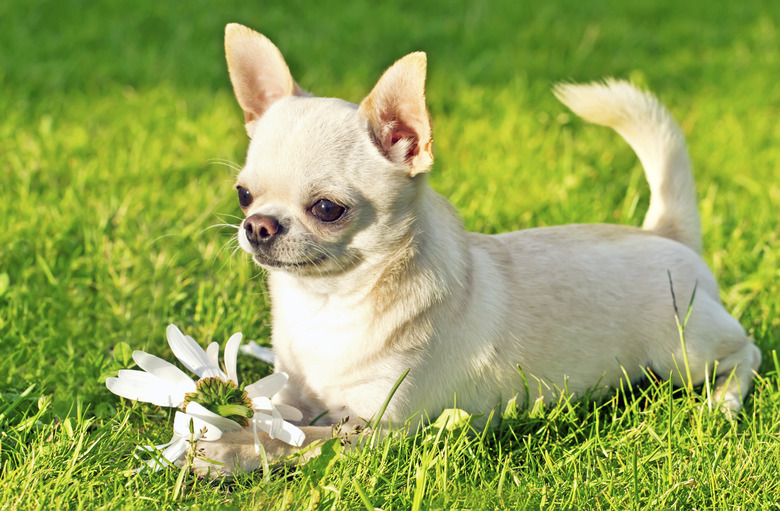Are Chihuahuas Hypoallergenic? Here's What To Know About Chihuahuas For People With Allergies
Pet allergies are exceedingly common in the United States, especially among people who already have other allergies or asthma. Roughly 30 percent of people with allergies have allergic reactions to both cats and dogs, which means that if you're someone who suffers during allergy season, you may want to think twice before adopting a pet. For allergic pet lovers, it's a catch-22. You love your pup, but your nose and itchy eyes sure don't.
The good news is that dog allergies are less common than cat allergies. While some people are allergic to every dog they meet, others don't have as much of a problem with certain breeds. Though there's no truly hypoallergenic dog, understanding how pet allergies work can help you pick the best dog for your allergies. Unfortunately, for fans of toy breed dogs, that may not be a Chihuahua.
Causes of pet allergies
Causes of pet allergies
Allergies are the result of an over-sensitive immune system. Rather than having an immune system that solely filters out harmful foreign substances like viruses and bacteria, people with pet allergies have immune systems that react to harmless substances. This includes proteins in pet urine, saliva, or dander (i.e. your pet's dead skin cells).
A common misconception is that people are allergic to pet hair, but this isn't the case. Hair isn't specifically an allergen, but pet hair can collect dander, urine, saliva, and other allergens like pollen and dust. For this reason, some pet owners may find short-hair or no-hair breeds more tolerable or find that they only develop an allergic reaction when their pup gives them a few friendly licks. Allergies aren't a one-size-fits-all problem, and some people are more sensitive than others.
Is a Chihuahua hypoallergenic?
Is a Chihuahua hypoallergenic?
Chihuahuas are cute and have a vivacious personality, but they're not considered one of the best dogs for allergies. Chihuahuas still shed, though they do shed less than larger dogs (it's a matter of surface area). Unfortunately, shedding historically aggravates allergies because it releases the dander and other allergens clinging to your dog's hair into the air and onto surfaces in your home.
To lessen symptoms, people with pet allergies tend to choose breeds that don't shed fur or shed very little fur. This includes toy breed dogs that don't have as much fur as their larger counterparts or hairless dogs. Many of these dogs are marketed as hypoallergenic, but no dog is actually hypoallergenic. According to the American Kennel Club, some of the best dogs for allergies include (but aren't limited to):
- Poodles (and some poodle mixes)
- Portuguese or Spanish water dogs
- Soft-coated wheaten terriers
- Schnauzers
- Xoloitzcuintlis (particularly the hairless variety)
- Chinese cresteds
- Bedlington terriers
- Bichon frises
- American hairless terriers
- Afghan hounds
- Lagotto romagnolo
Dealing with dog allergies
Dealing with dog allergies
So, you want to adopt a Chihuahua despite your allergies. There are some ways you can ease your symptoms. It's important to regularly bathe your pet to remove dander and other allergens from her coat. Regular brushing also helps lessen the amount your dog will naturally shed.
In addition to taking allergy medicine, you can make changes to your home to help deter allergens. Keep your pet out of rooms where you spend a lot of time, especially your bedroom since bedding tends to accumulate allergens. Opt for carpet-free flooring, but if you must have carpet, shampoo and vacuum it regularly. High-efficiency particulate air (HEPA) purifiers will help reduce allergens in the air.
Beyond that, you can be mindful of the type of Chihuahua you adopt. A hairless Chihuahua sheds fewer allergens than a long-haired Chihuahua. Certain Chihuahua mixes may also shed less than traditional short-haired or long-haired Chihuahuas. Even so, you may still find yourself fighting allergy symptoms, so it's important to set realistic expectations.


